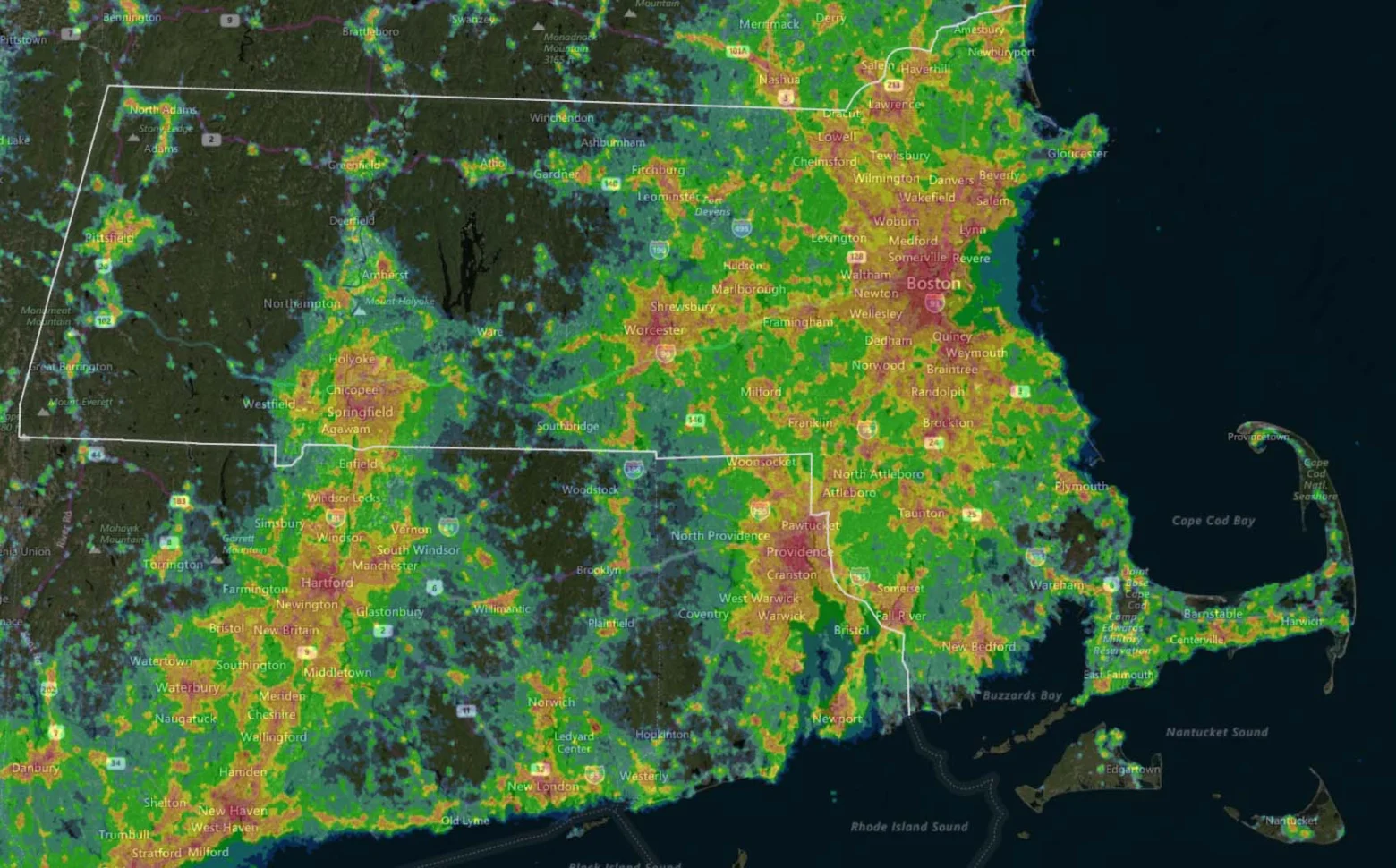Tim Brothers presented “Starry Skies, Healthy Garden” at our March meeting. This meeting was open to the public and you can watch it on video at the bottom of this article if you missed it or want to see it again.
Tim urges us all to contact our Massachusetts State representatives to encourage them to take action to help pass “An Act to improve outdoor lighting, conserve energy, and increase dark-sky visibility”. This bill has been introduced by Reps. Sean Garballey and Simon Cataldo (as H.3164) and by Sen. Cynthia Creem (as S.2102). It is a refile of H.5079/S.3306 from last session, which had 32 bipartisan co-sponsors.
This legislation would promote energy-efficient lighting practices throughout the Commonwealth by:
- requiring municipal- and state-funded projects to use fully-shielded exterior lighting in new or replacement installations, and to install that lighting only where it is needed;
- requiring these installations to use lighting with a correlated color temperature (CCT) of no higher than 3000K, which researchers advocate for human circadian health and nocturnal habitats;
establishing maximum illumination thresholds for municipal- and state-funded lighting projects; - requiring Mass. Department of Transportation to review and update its criteria for roadway lighting to conform to commonly accepted best practices; and
- requiring the Mass. Dept. of Public Utilities to create reduced-rate tariffs for low-wattage streetlights and for those that are dimmed or turned off during the night. Then cities and towns can stop paying for electricity they don’t actually use and incentivize lighting choices that save both energy and money.
Poorly designed or excessive night lighting harms the environment in many ways, including:
- Energy waste: By one recent estimate, light streaming up into the night sky from cities and towns in Massachusetts equates to more than $10,000,000 in wasted electricity annually.
- Visual impairment: Poorly designed lighting causes harsh glare that blinds and distracts drivers, especially in bad weather and for elderly drivers with poor vision.
- Environmental consequences: Excessive lighting disrupts nocturnal pollinators and disorients many birds, especially during their seasonal migrations, causing death due to impact or predation.
- Loss of the starry sky: Skyglow from light pollution is increasing at roughly 10% per year worldwide. More than 75% of Massachusetts residents can’t see the Milky Way from their homes.
Answers to frequent questions about the scope of this legislation:
- It applies only to state- and municipally-funded projects (e.g. streetlight replacement, school renovations, etc.). Residential and commercial properties are not affected — though 55 communities statewide have outdoor-lighting bylaws that cover the residential/commercial sectors.
- It does not require the state or any municipality to replace existing lighting. Rather, its provisions apply when new installations are made or when existing installations are being replaced.
- Conforming lighting systems cost no more to install and actually cost less to operate; well-designed lighting actually improves safety and security by reducing glare and overlighting.
- The primary sponsor is DarkSky International (darksky.org) and its Massachusetts chapter. This bill has been endorsed both by the Illuminating Engineering Society (IES) and the International Association of Lighting Designers (IALD), as well as by nearly 20 environmental and scientific organizations in the Commonwealth.
If you have questions regarding this bill, please contact Kelly Beatty (kbeatty@darksky.org), Tim Brothers (astrobrothers@gmail.com), or Dr. Mario Motta (drmariomotta@gmail.com).
References:
“Human and Environmental Effects of Light Emitting Diode Community Lighting”
(American Medical Association, CSAPH Report 2-A-16, 2016; https://is.gd/AMA2016)
“Visibility, Environmental, and Astronomical Issues Associated with Blue-Rich White Outdoor Lighting” (International Dark-Sky Association, 2010; https://is.gd/IDA_bluelight_report)
“IDA and IES announce strategic collaboration to advance quality lighting to reduce light pollution” (Illuminating Engineering Society, April 16, 2020; https://is.gd/5principles)
